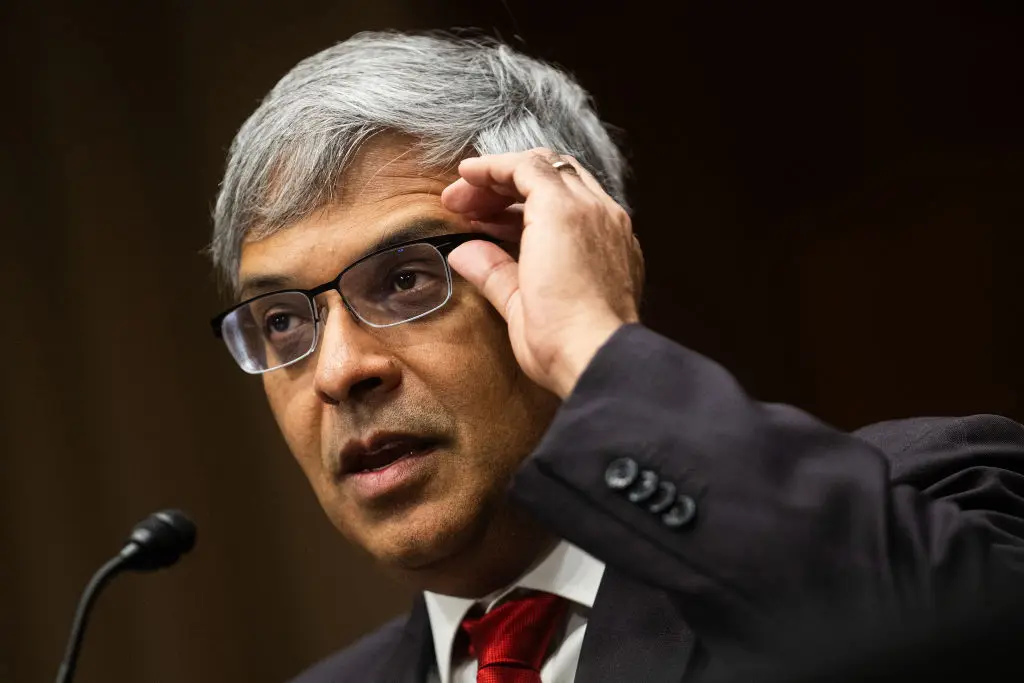The U.S. Senate has officially confirmed Dr. Jay Bhattacharya as the new director of the National Institutes of Health (NIH) following a partisan vote. A renowned physician and Stanford professor, Bhattacharya is recognized for his controversial stance during the COVID-19 pandemic against lockdown measures and vaccine mandates, making his confirmation a pivotal moment in health policy leadership. During his tenure, Bhattacharya plans to push for a new vision at NIH that prioritizes transparency, embraces diverse ideas, and aims to enhance health outcomes for Americans.
| Article Subheadings |
|---|
| 1) Confirmation Process and Background |
| 2) Controversial Views on COVID-19 Measures |
| 3) Addressing Research Funding Cuts |
| 4) New Vision for NIH |
| 5) Launch of New Research Journal |
Confirmation Process and Background
Dr. Jay Bhattacharya’s recent confirmation as the Director of the NIH came after a crucial vote in the Senate. This party-line vote succeeded a similar decision by the Senate Committee on Health, Education, Labor and Pensions, which had also favored Bhattacharya’s appointment along partisan lines. Known for his prominent academic credentials, Bhattacharya serves as a physician and professor at Stanford, where he is actively engaged in issues affecting health and economic policy. His background includes work with the Institute for Economic Policy Research at Stanford, allowing him to blend health insights with economic understanding.
Controversial Views on COVID-19 Measures
During the COVID-19 pandemic, Bhattacharya emerged as a critical figure, advocating against strict lockdown measures and vaccine mandates. He co-authored the Great Barrington Declaration in October 2020, a statement signed by numerous scientists that questioned the efficacy of lockdowns and promoted the idea of natural immunity for low-risk individuals. His views sparked fierce debate, positioning him at the center of a contentious discourse surrounding public health policy. While some praised his stance for prioritizing personal freedoms, others criticized it as undermining public health efforts to control the pandemic.
Addressing Research Funding Cuts
During Senate hearings leading up to his confirmation, Bhattacharya was scrutinized regarding his position on federal research funding, particularly in light of President Trump’s controversial cuts to the NIH budget. The NIH faced a 15% cap on indirect research costs, which Bhattacharya acknowledged but did not specifically critique. His response indicated a willingness to adhere to legal frameworks while committing to assess the impact of funding cuts on public health research. Bhattacharya emphasized the importance of transparency concerning the allocation of indirect costs, suggesting collaborative efforts among universities to clarify where funding is directed.
New Vision for NIH
In setting his agenda for the NIH, Bhattacharya articulated a vision that seeks to decentralize research initiatives, promoting an environment that embraces a variety of scientific perspectives and discourse. He aims to eliminate “frivolous” projects from the NIH’s portfolio that do not contribute meaningfully to health outcomes. The focus, according to Bhattacharya, should be on research that directly addresses the most pressing health challenges faced by Americans. He stated,
“What matters is: Do scientists have an idea that advances the scientific field they’re in? Do they have an idea that ends up addressing the health needs of Americans?”
This rhetorical question underlines his commitment to practical outcomes in health policy.
Launch of New Research Journal
Before his confirmation, Bhattacharya collaborated with fellow scientists, including Dr. Marty Makary, to establish the Journal of the Academy of Public Health (JAPH). This journal is designed to foster scientific dialogue and combat the perceived gatekeeping in medical research. It aims to enhance the transparency of the peer review process by publishing critiques and reviews of significant studies that may not always disclose their evaluations publicly. The creation of JAPH signifies Bhattacharya’s commitment to improving the integrity of scientific discourse in health research and ensuring diverse viewpoints are represented.
| No. | Key Points |
|---|---|
| 1 | Dr. Jay Bhattacharya has been confirmed as the new director of the National Institutes of Health. |
| 2 | Bhattacharya is known for his controversial opinions regarding COVID-19 lockdowns and vaccine mandates. |
| 3 | During his confirmation hearings, he faced questions regarding President Trump’s cuts to NIH funding. |
| 4 | Bhattacharya advocates for a new decentralized vision for NIH that prioritizes impactful health research. |
| 5 | He has co-founded a new research journal aimed at enhancing scientific transparency and discourse. |
Summary
The confirmation of Dr. Jay Bhattacharya as the director of the NIH represents a notable shift in U.S. health policy leadership, particularly in the context of the ongoing public health discussions surrounding COVID-19. His appointment is likely to steer NIH towards a more transparent, inclusive, and outcome-focused approach to health research, albeit amid controversies over funding and scientific governance. Bhattacharya’s commitment to revamping the NIH’s research goals places him at a critical intersection of science and public health policy.
Frequently Asked Questions
Question: What qualifications does Dr. Jay Bhattacharya have?
Dr. Jay Bhattacharya is a physician and professor of medicine at Stanford University, where he specializes in health policy and economics.
Question: What is the Great Barrington Declaration?
The Great Barrington Declaration is a statement that argues against widespread COVID-19 lockdowns, promoting the notion of natural immunity and the protection of vulnerable populations instead.
Question: Why is transparency in research funding important?
Transparency in research funding is crucial for accountability, ensuring resources are allocated effectively, and fostering trust within the scientific community and the public.
